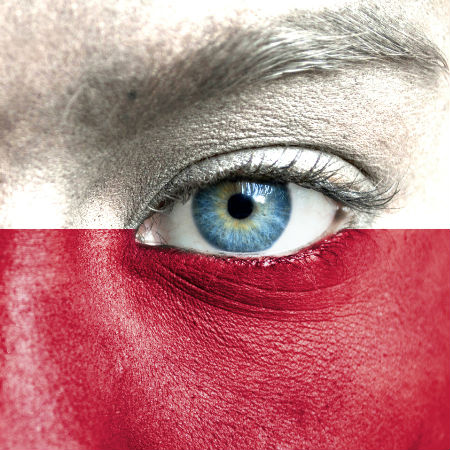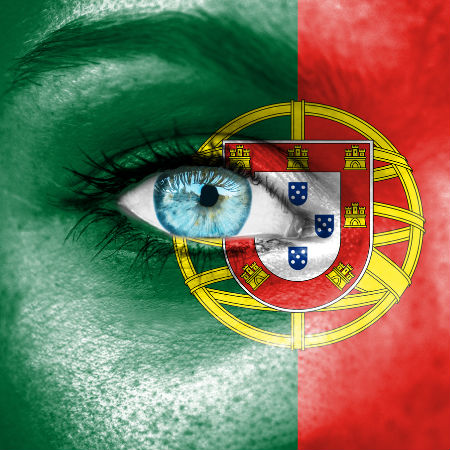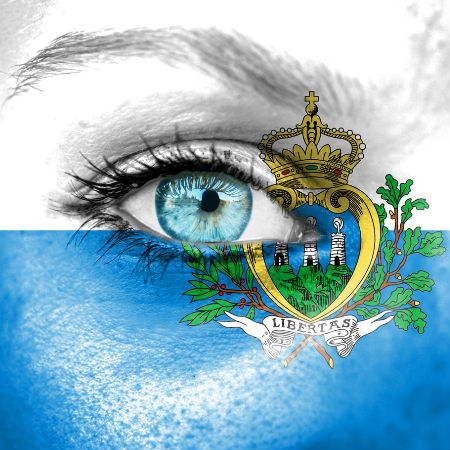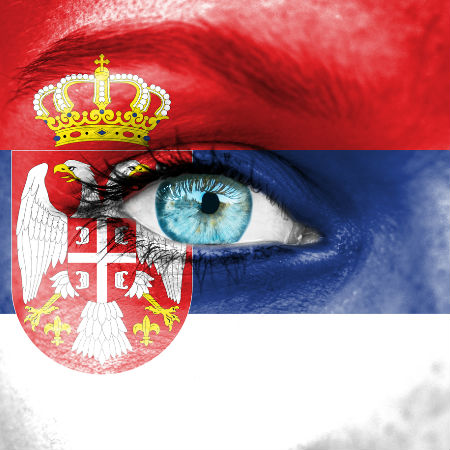
What is the Eurovision Song Contest?
Started way back in 1956 as a way of drawing a fractured Europe back together with the healing power of music, the Eurovision Song Contest, or Concours Eurovision de la Chanson – the contest is telecast in both English and French – is open to all active members of the European Broadcasting Union, which oversees the competition.
Each country is permitted to submit one three-minute song to the contest – a song which is selected by a variety of means, usually a winner-takes-all competition such as Sweden’s renowned Melodifestivalen – which they perform in one of two semi-finals in the hopes of making it to the glittering grand final.
Only six countries have direct entry into the grand final:
* The Big Four who fund most of the contest – UK, Germany, France and Spain
* The host country (which is the winner of the previous year’s contest)
* Italy, who didn’t take part for many years and was re-admitted in 2011 after a 14 year absence (it was one of seven countries that competed in the first event), making the Big Four the Big Five.
The winner is chosen by a 50/50 mix of viewer votes (you cannot vote for your own country) and a jury of music industry professionals in each country, a method which was chosen to counter the alleged skewing of votes based on political and/or cultural lines when voting was purely the preserve of viewers at home.
Past winners include, of course, ABBA in 1974 with “Waterloo” and Celine Dion who won for Switzerland in 1988 with “Ne partez pas sans moi”.Above all though, the Eurovision Song Contest is bright, over the top and deliciously camp, a celebration of music, inclusiveness and togetherness that draws annual viewing figures in the hundreds of millions.
This year’s contest will be held in Tel Aviv, Israel.
POLAND: “Fire of Love (Pali się)” by Tulia

THE ARTIST
In a sea of child prodigies and people who began training for Eurovision before their parents even conceived them (that’s some ambition there), stands Tulia, a Polish folk group with an edge – they perform a style of Polish folk known as “śpiewokrzyk”, which translates as “white voice” or, intriguingly, “screaming sing” – who formed in Szczecin, Poland in the heady days of 2017.
Comprising singers Joanna Sinkiewicz, Dominika Siepka, Patrycja Nowicka and Tulia Biczak – I’m guessing the final singer made it to the official names registry ahead of the others? – the group may have languished in beautiful obscurity were it not for the fact that they covered Depeche Mode’s song “Enjoy the Silence” and and uploaded it to YouTube where it was discovered and publicised by the group. Huzzah!
Now, you might be thinking that’s lovely but did that viral video-assist really do much for the band long term?
Did it what; quite apart from the band’s fans, and I quote the official Eurovision bio here, “wiping tears from their eyes in amazement”, the group released their debut album, inspiringly-called Tulia, which went platonum in Poland, in the process winning them three prestigious awards at the National Festival of Polish Song in Opole, and appearances, no doubt glimpsed through weeping eyes by fans, at festivals like Top Of The Top Sopot Festival 2018 and Lato z Radiem Festival 2018 in Gdynia.
All this success is laudable of course but now they stand on the cusp of Eurovision glory – will they be able to screamingly sing their way to the top spot?

THE SONG
Perhaps not the top spot but this is way more catchy than it has any right to be.
Dancing on the edge of melodic discordance, their song “Fire of Love (Pali się)”, augmented by their eerily-ethereal voices, works a treat, blending together some dance, light electronica and key changes that work an appealing treat.
You may not think a blend of idiosyncratic Polish folk and pop would work well but it does, as my earworm will attest with bloodied resignation; I came to the song doubtful as hell about its inherent catchiness but I stand chastened as the song continues to careen its way into my inner Bose speaker with frightening regularity.
I don’t think this will place Poland top of the dais but it could well push them into the grand final, propelled by what I expect will be visuals more edgy than you might expect if the clip is any guide.
PORTUGAL: “Telemóveis” by Conan Osiris

THE ARTIST
Now if you’re going to come up with a memorable stage name, and you’re a Portuguese singer-songwriter by the name of Tiago Miranda, it’s best to go all out or not bother trying to be wildly creative at all.
Portugal’s entry to the 2019 Eurovision Song Contest has indeed gone for broke, choosing his nom de plume Conan Osiris from Japanese series Future Boy Conan (he was born on the same day as master Japanese animator Hayao Miyazaki) and the ancient Egyptian god Osiris, who is a symbol for rebirth and resurrection.
Now, you’d expect an artist with such disparately offbeat influences to be brave enough to try pretty anything musically and you would indeed be right – gold star to you!
The 30-year-old performer, who is a singer, self-taught dancer, songwriter, composer and producer – no sleep for him! – has also studied art & design, worked at Lisbon’s most iconic sex shop, ContraNatura, as part of his observance and study of human nature (so he tells his mother) and released three albums.
The reason why we now need to know all this is that after being invited to compose a song for Portugal’s national selection event Festival da Canção by national broadcaster RTP and deciding to sing it himself (why would you not?), the man with his own personal designer and dresser, Rúben de Sá Osório, won the maximum number of votes from both the jury and the audience.

THE SONG
Clearly there is some appeal to this song that I am missing because while I do not doubt the sound judgement of the public and musical jury members of Portugal, “Telemóveis” is, quite clearly, an acquired taste.
It is oddly catchy, with some interesting string work and the kind of vocal machinations that impress with their boundless dexterity, and the staging is to be commended for not playing it safe – love the shoes and cheek jewelery Rúben de Sá Osório! – but it doesn’t strike as the kind of song that will bestride the stage at the Eurovision grand final.
Granted you might have said the same thing about the song that won Eurovision for Portual in 2017, “Amar pelos dois” by Salvador Sobral, but Osiris’s entry lacks the special emotive something that made the winning song such a pleasure to listen to.
“Telemóveis” has a certain compelling quixotic charm it’s true, but beyond curiousity value alone, it doesn’t possess enough stature or appeal, I suspect, to really make its mark at Eurovision.
SAN MARINO: “Say Na Na Na” by Serhat

THE ARTIST
Joining the rapidly-expanding club of two-time Eurovision representative, who seem to be rife at this year’s contest, signaling either a dearth of imagination or a penchant for sticking with a sure thing (or possibly not in this case), qualified-dentist Serhat returns for San Marino after representing the small Italy-enclosed country in 2016 with “I Didn’t Know” (which may not have the contest but got to 25th position on the Billboard Dance Charts in the United States).
Known to his doctors as Ahmet Serhat Hacıpaşalıoğlu, San Marino’s recycled representative is a Turkish singer, producer and television presenter, who hosted and produced Turkey’s version of the Jeopardy! game show and who has colaborated with Georgian singer Tamara Gverdtsiteli on a number of songs, as well as touring with her through Russia, Belarus and Moldova.
Currently based in Germany, where he has been making music since 2013, Serhat has a new album that has been produced all across Europe, a slew of awards to his credit including the “Fair Play Grand Prize” awarded by the Turkish National Olympic Committee and a dapper stress style.
But does he what it takes vocally and staging-wise to really make a splash on his second go around the glittery Eurovision merry-go-round?

THE SONG
With someone as gleefully individualistic as Serhat, you want to say “Hell yes, this is awesome!” but alas such a thing can’t be said.
That’s not to say that “Say Na Na Na” doesn’t have a reasonable amount of appeal – it’s got a fantastically-catchy melody and beat that is sure to fill the dancefloors, for a little while at least, but it’s done by the spoken word vocals and it’s dated ’70s vibe which never quite manages to land on the right side of fashionably retro.
Staging wise, it’s probably going to knock it out of the park with enough visual cheese to keep an army of performance-loving mice fed for decades, but the song itself is less an evocative return to the past and more of a tired retread that sounds bouncy and fun but whose effect, and thus appeal to the good voters of Eurovision, will likely disappate as quickly as it arrived.
Good on Serhat for not only “singing” but writing and producing the song but next time around, and really do you want to go there again San Marino, it may be a good idea to make the only been-there-done-that aspect of the entry the performer and not the entire song too.
SERBIA: “Kruna” by Nevena Božović

THE ARTIST
Paraphrasing, badly paraphrasing Shakespeare, especially from one of his more dramatically-resonant plays, may not seem like a natural go-to to kick off a Eurovision entrant’s but the return of Nevena Božović to Europe’s biggest musical stage is practically crying out for some sort of clever riff on Henry V’s “Once more unto the breach, dear friends, once more”.
Perhaps not, but the fact remains that Serbia’s representative has not just been here once before but twice before; in 2007 she took place at the Junior Eurovision Song Contest and in 2013, was part of the band My 3 (Moje 3) which represented Serbia and came 11th in their semi, missing out on grand final glory.
Between those two pivotal Eurovision points, Nevena was busy, winning a silver medal for the best voice in the Festival in Battipaglia (awarded by the President of Italy, no less) in 2008, taking out the ‘Sunčane Skale’ Festival in Herceg Novi and spending 2010 not only being awarded the status of best debut at the Festival in Vrnjačka Banja but making to the finals of the first season of The Voice of Serbia.
Over-achieving much? Wait, she’s not done yet – building on the piano tuition of her youth, which she naturally mixed with some gym work too (as you do), studying at the Faculty of Music of the University of Belgrade.
So with all that behind her, does Eurovision glory await in Tel Aviv in 2019?

THE SONG
If chilled ballads are your Eurovision musical bae, then quite possibly.
While the song is not anything out of the balladry box, it has some power and beauty behind it, and Nevena, possessed of any impressive set of pipes, invests it with a considerable amount of emotional oomph.
It definitely makes its presence felt, but I’m not sure that’s entirely enough to get it across the line; it lacks that intangible something that would make it truly memorable, its effect evaporating almost as soon as its run its course.
So Serbia will do well enough, but don’t look for this to rampage it way to the top 5 or anything close; getting out of the semi may be a big enough ask and for that Nevena may have to be satisfied … until the next time she returns.
SLOVENIA: “Sebi” by Zala Kralj & Gašper Šantl

THE ARTIST
So, my friends, what happens when two ambitious solo artists, committed to their careers in the Slovenian music scene, come together to make beautiful music?
No, that’s not some kind of weird euphemism; in 2017, Zala Kralj & Gašper Šantl joined forces, after meeting, naturally enough, on Instagram.
It’s a natural fit for both – Gašper is a producer and songwriter and musician while Zala has the voice (and songwriting talents too); together, his pop and her voice were a winning combination (yes, you may say “awwww” now) with their debut song “Valovi” dominating airplay and winning the Slovenian annual music award Zlata piščal for the best song of 2017.
How confident has this and other successes made them? According to their breathless Eurovision bio, they approached competing in Slovenia’s Eurovision selection process Evrovizijska Melodija 2019, with calmness and confidence, believing “that there is no challenge they could not face together.”
They want their songs to have meaning for their listeners, but with their EP Štiri (Four) now out in the world, will they make meaning for themselves with a win at Eurovision?

THE SONG
Maybe not a win but “Sebi” is a quietly-devastating piece of music.
Zala’s voice is delicately-emotive, an ethereal instrument that never lacks an impressive emotional presence, laying itself across the idiosyncratically-chilled melody with the kind of listenable elegance that captures your attention.
Sure it’s a ballad and doesn’t have diva-levels of torch song impact, but it’s a desperately beautiful song, the kind that 3 a.m. is crying out for, and which, you hope, Eurovision voters will see as a significant cut above many of the other ballads on offer this year.
With a lyrical cry to be yourself, even in the face of adversity, “Sebi” has a lot going for it; it won’t the competition but it will make for one of the more distinctive songs of the contest and that is never a bad thing.
EUROVISION EXTRA EXTRA!
Want to know more about Australia’s representative, Kate Miller-Heidke and her amazing song “Zero Gravity”? Of course you do, courtesy of Wiwibloggs …
It’s official! Madonna, her $1 million appearance fee for the performance of two songs bankrolled by billionaire businessman Sylvan Adams, will be following in the footsteps of Justin Timberlake and Aqua.
Find out more at Wiwibloggs.
MY SEMI FINAL 1 TOP 10
So drum roll if you please maestro!
Which ten songs do I foolishly predict (with a usual 50% accuracy, proving I do not know the mind of Europe or my home country Australia) will garner themselves a coveted grand final spot? (These are not, by the way, in any particular order.)
- “Zero Gravity” by Kate Miller-Heidke (Australia)
- “Hatrið mun sigra” by Hatari (ICELAND)
- “Like It” by ZENA (BELARUS)
- “Wake Up” by Eliot (BELGIUM)
- “Replay” by Tamta (CYPRUS)
- “Friend of a Friend” by Lake Malawi (CZECH REPUBLIC)
- “Kruna” by Nevena Božović (SERBIA)
- “Fire of Love (Pali się)” by Tula (Poland)
- “Sebi” by Zala Kralj & Gašper Šantl (SLOVENIA)
- “Look Away” by Darude feat. Sebastian Rejman (FINLAND)